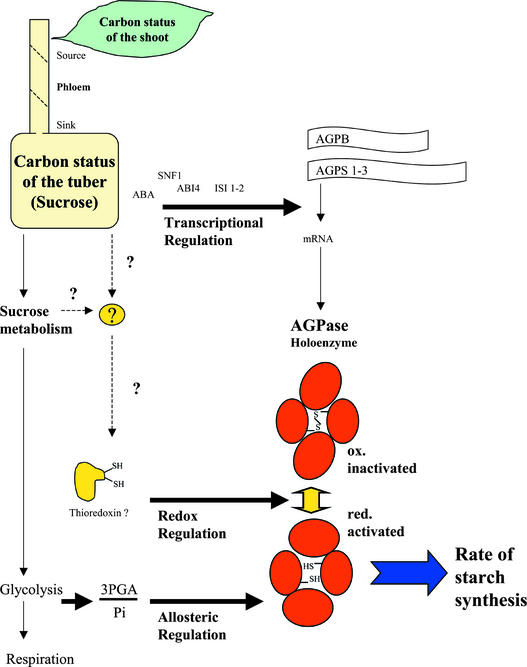Figure 12.
AGPase Is a Key Enzyme for the Regulation of Starch Synthesis in Potato Tubers.
Redox modulation of AGPase provides a novel mechanism that combines with known mechanisms to coordinate AGPase activity in a network that allows starch synthesis to respond across a range of time scales to a variety of physiological and environmental stimuli. Allosteric control by 3PGA and Pi operates in a time frame of seconds to adjust the rate of starch synthesis to the balance between Suc breakdown and respiration. Post-translational redox modulation leads to changes in AGPase activity in a time frame of ∼30 to 60 min. Activation occurs in response to factors directly or indirectly related to increased Suc availability and leads to stimulation of starch synthesis and decreased glycolytic metabolite levels. The signaling components leading to redox modulation of AGPase are unknown and may involve thioredoxins as well as putative sugar sensors. Transcriptional regulation in response to changes of Suc allows more gradual changes in AGPase activity, which can require days to develop. ABA, abscisic acid; ABI, abscisic acid insensitive; ISI, insensitive for Suc induction; SNF1, Suc non-fermenting1.

